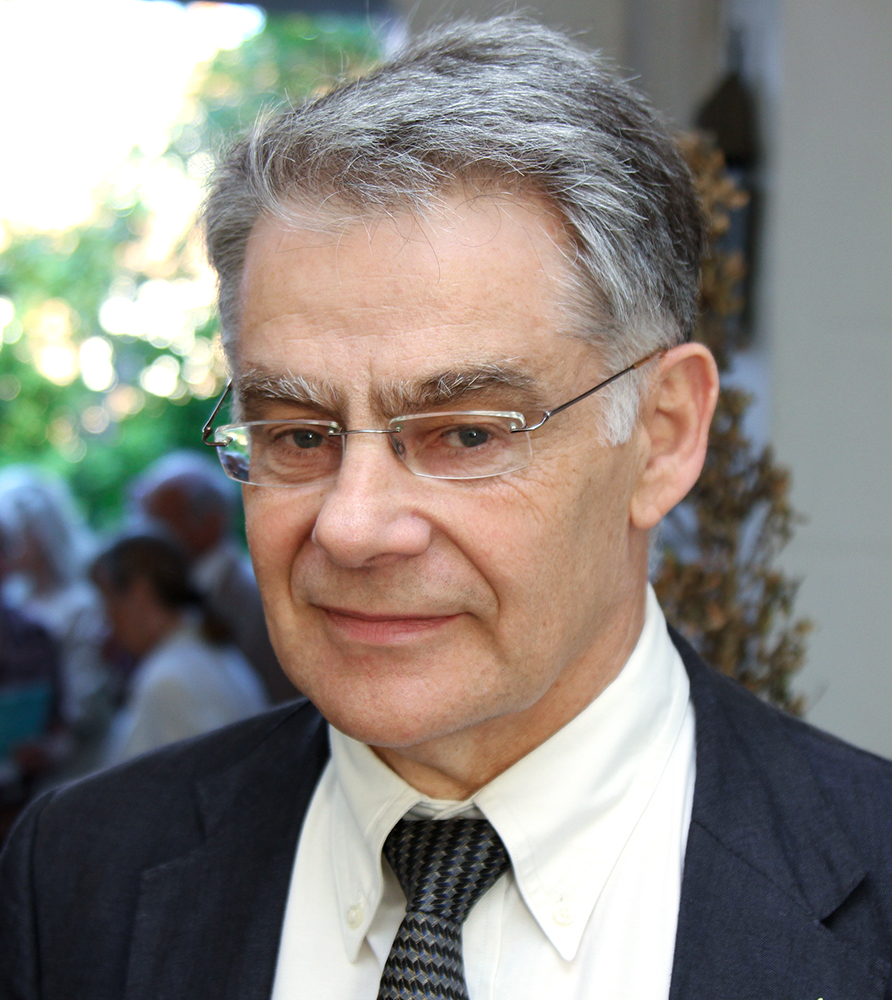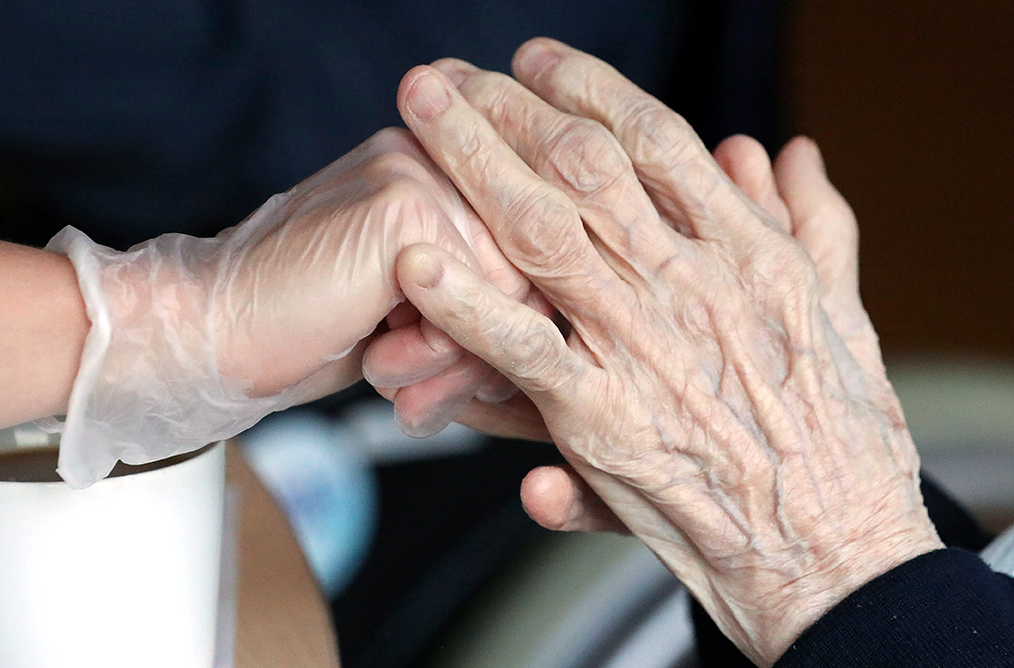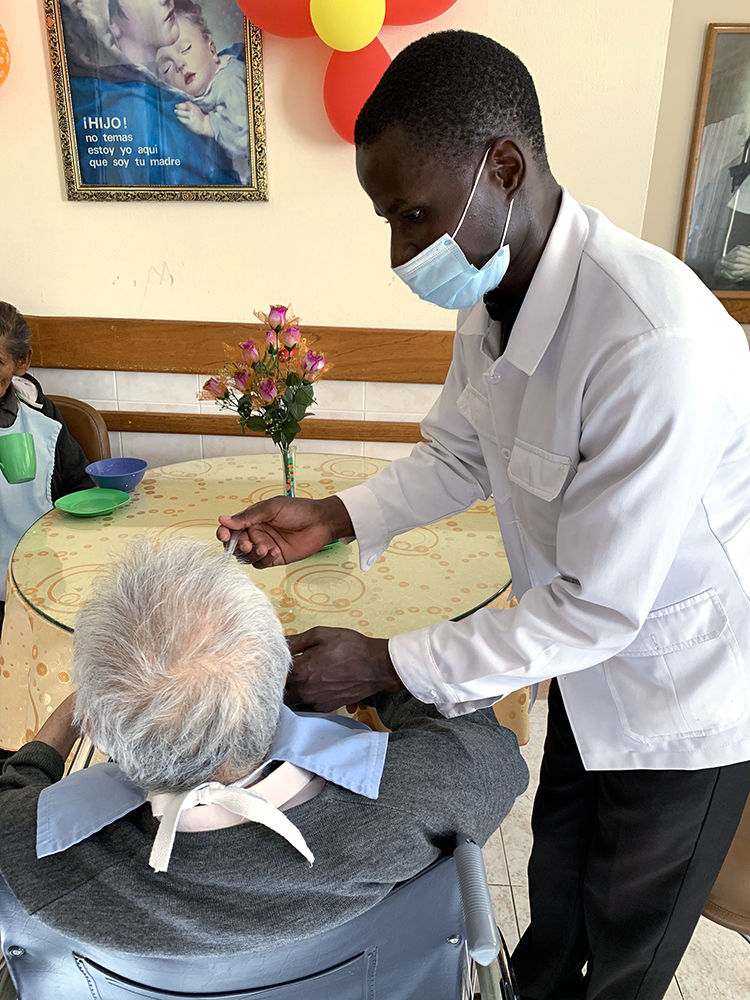
MANCHESTER, England (CNS) — Elderly people are being left to die in Britain’s nursing homes instead of being offered care in hospitals, said a priest and former surgeon.
Fr. Patrick Pullicino volunteered to return to the U.K. National Health Service to work as a consultant at Nightingale Hospital in London. The hospital was one of seven to be built in just 10 days, providing 4,000 of 11,000 new beds for patients requiring emergency treatment for COVID-19.

But just 51 patients have been treated there in three weeks, with thousands of surplus beds in many other NHS hospitals even as the coronavirus passes its peak.
Fr. Pullicino, who served as chairman of the Department of Neurology and Neurosciences at the New Jersey Medical School in 2001 before returning to the U.K. in 2005, told Catholic News Service April 25 that the excess beds can be explained by a policy of returning elderly patients from hospitals to care homes even if they have COVID-19.
“If somebody in a nursing home gets COVID, you don’t leave them there. You have to monitor them, and if they get to a certain point you bring them into [the] hospital. You don’t leave them to die with hypoxia and pneumonia and put them on palliative care in a nursing home,” he said. “That’s not the way to deal with it, but that is what they are doing.”
Guidance published April 2 by the Department of Health also advised the National Health Service to transfer elderly COVID patients from their own homes into nursing homes rather than allow them in a hospital for treatment.
Letters shown by families to British media show doctors have encouraged some elderly and critically ill people to sign forms to say they do not wish to be either resuscitated or taken to a hospital if their conditions deteriorated. Some letters indicated their self-sacrificial actions would protect the state-funded health service.
Fr. Pullicino said the policy was so misguided that it should be the subject of a public inquiry. He said the “mortality among the elderly in care homes has been terrible, with huge numbers of people dying.”

“It is not just a mistake — maybe it was a mistake — but there is no feeling for these people. The NHS has abandoned a lot of these elderly sick,” he said.
Data published April 28 showed there were 2,050 care home deaths from COVID-19 in the week ending April 17, more than double that of the previous week. The official coronavirus death toll in nursing homes is 3,096, but projections suggest it will rise as hospital deaths, which are nearing 23,000, will decline.
The Care Quality Commission, a government watchdog, also believes that the figure is a low estimate and has concluded from its own research that more than 4,300 have died of the virus in care homes in two weeks beginning in mid-April.

At the April 28 televised government daily briefing, Health Secretary Matt Hancock said there was nothing unusual about the death rate in care homes.
“The proportion of deaths in care homes is around one-sixth of the total, which is just below what it is in normal times,” he said.
“I want make sure that we bring as much transparency as possible to important information like this,” he said, adding that beginning April 29 the U.K. daily figures would include care home deaths alongside hospital deaths.
“I am determined to do everything I can to protect the vulnerable,” said Hancock.
Fr. Pullicino trained as a doctor in Malta, graduating with distinction in 1973, before specializing in neurology in London and New York.
In 2012, he was among a small group of doctors to publicize abuses carried out under the Liverpool Care Pathway, an end-of-life protocol abolished two years later.
Now 70, he retired from medicine 18 months ago and last year was ordained as a priest for the Archdiocese of Southwark, which covers South London and the counties of southeastern England.
He contracted COVID-19 in London earlier this year and, after recovery, answered an appeal by the government for former health professionals to come out of retirement to fight the virus.
On April 20, the Catholic bishops of England and Wales issued a statement stating it was morally wrong to discriminate against people in the provision of life-saving treatment simply because of their age.
“While we would all agree that the allocation of resources must be done as fairly as possible, the criteria of fairness must be clear and shared by us all,” they said.
— By Simon Caldwell, Catholic News Service.





